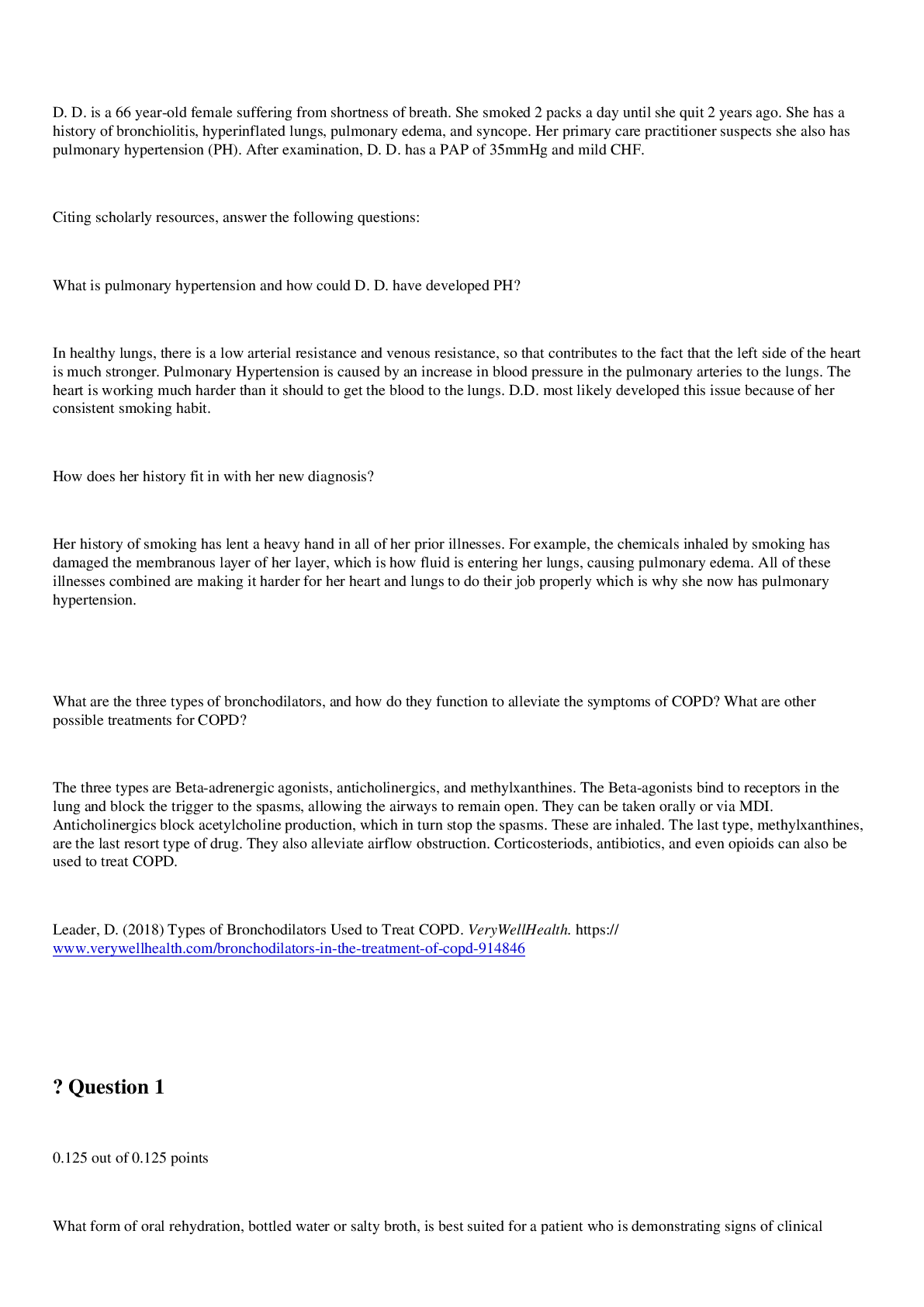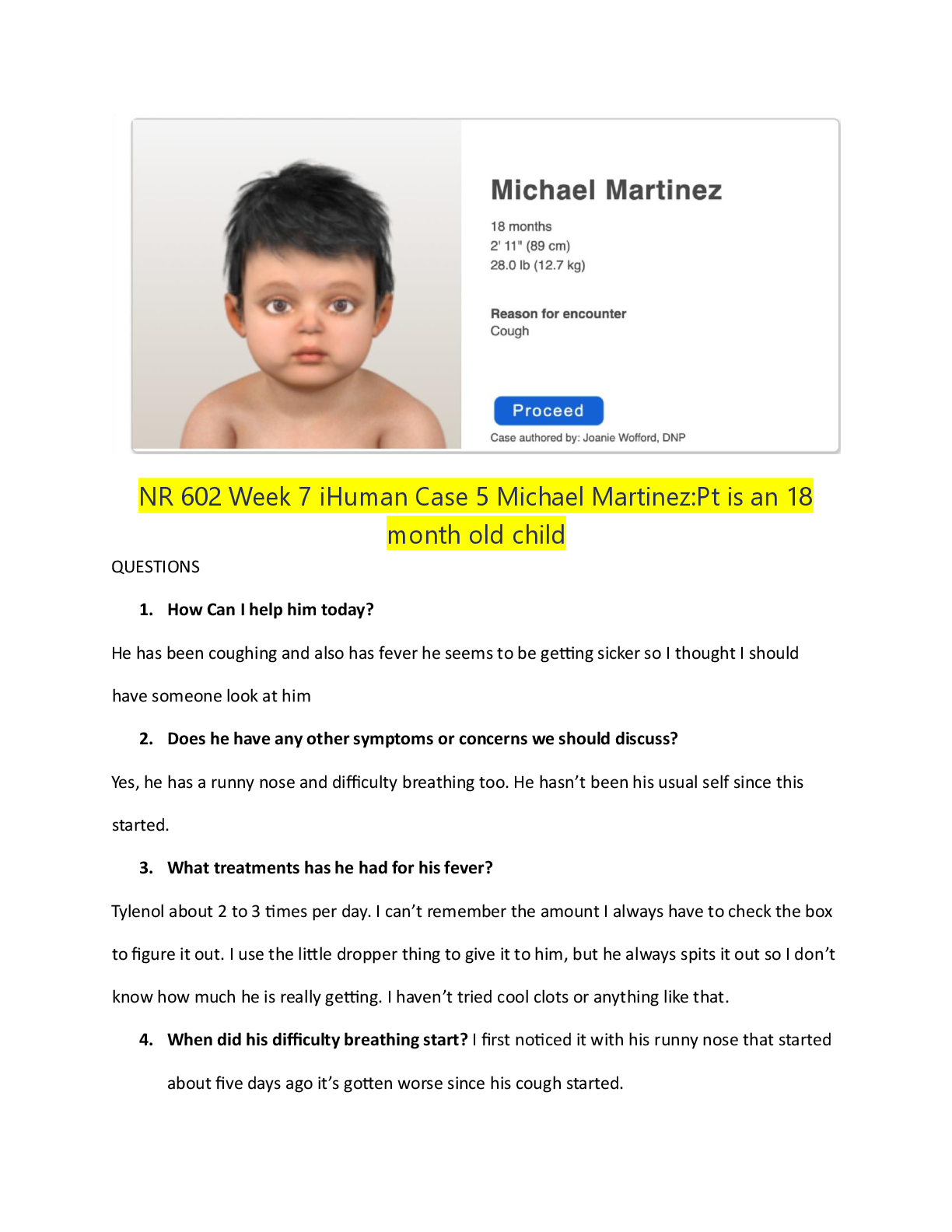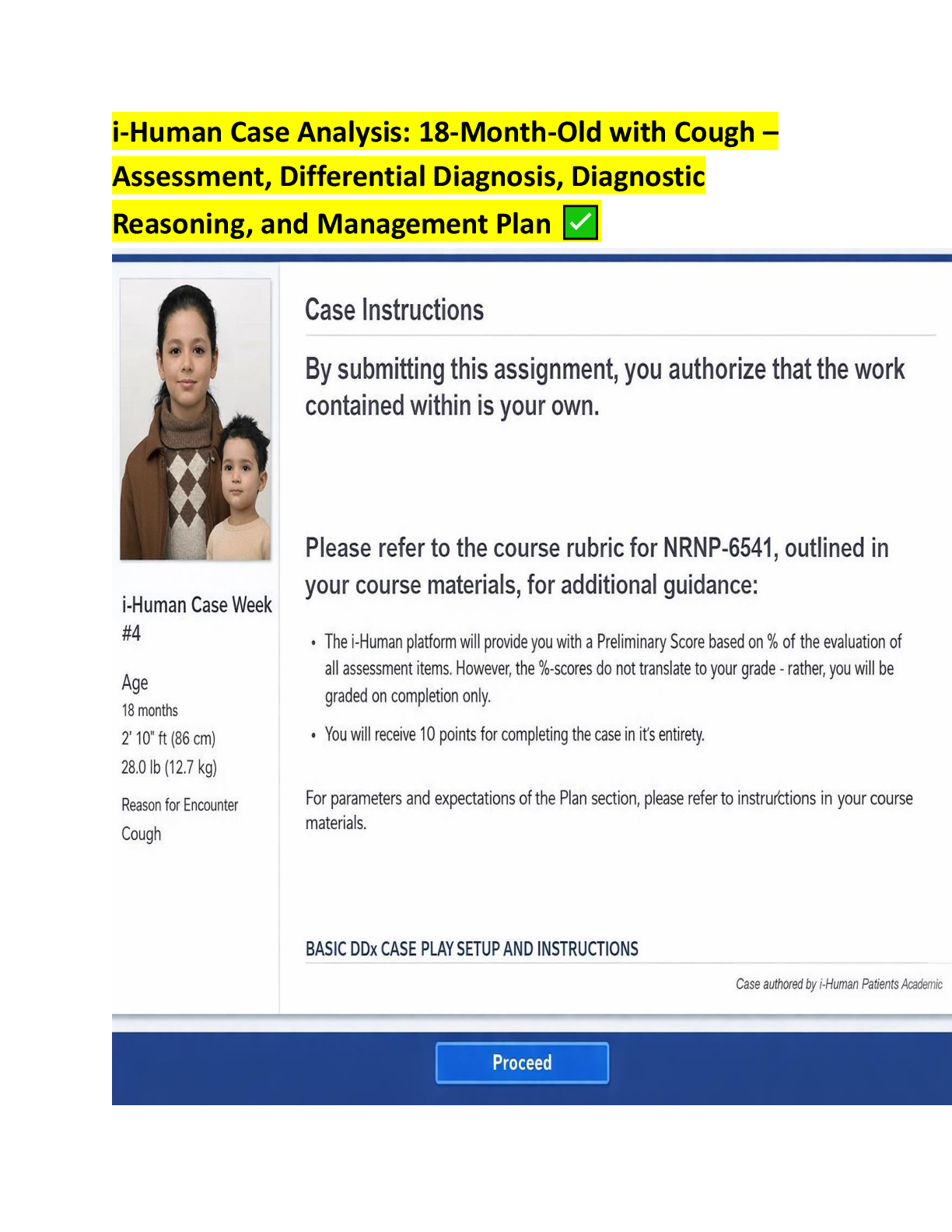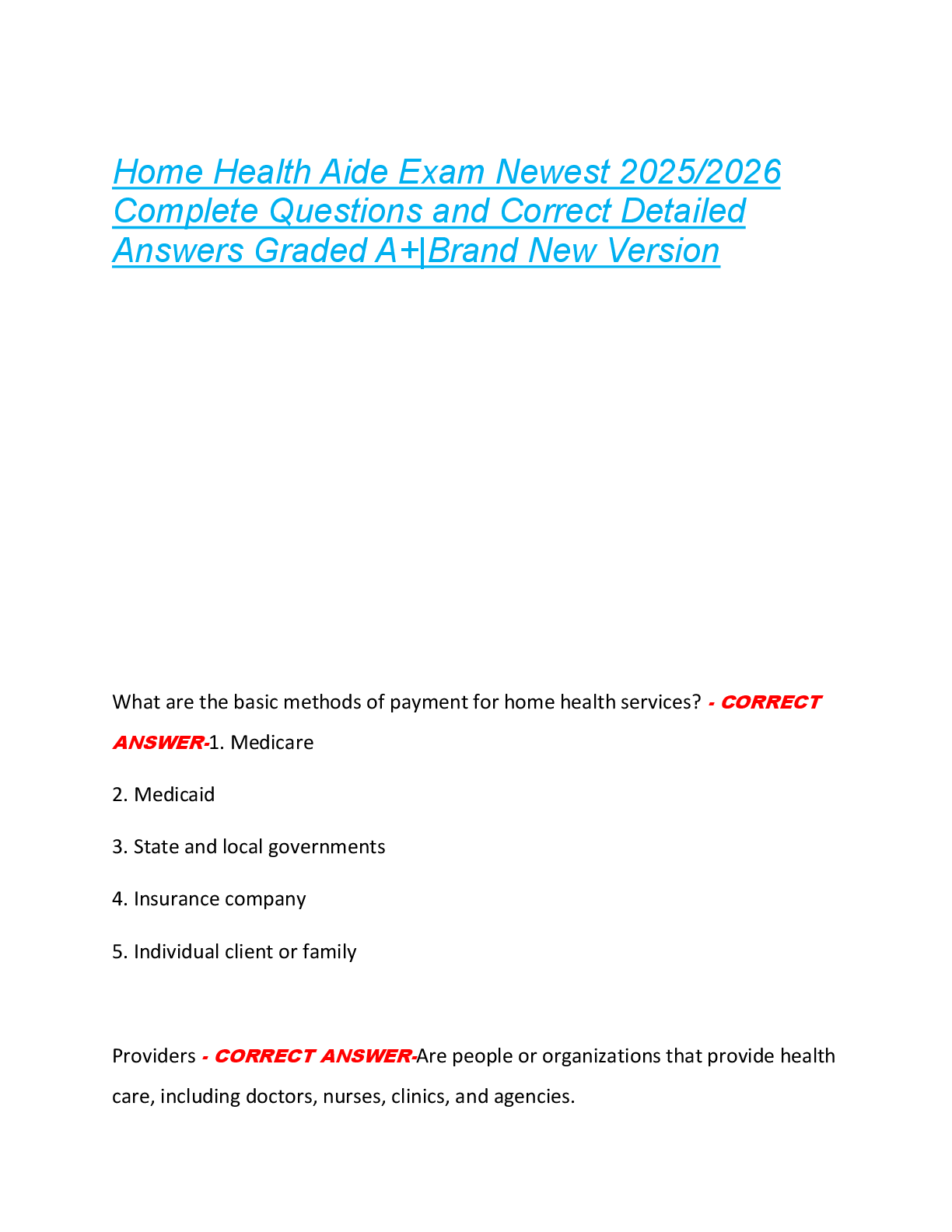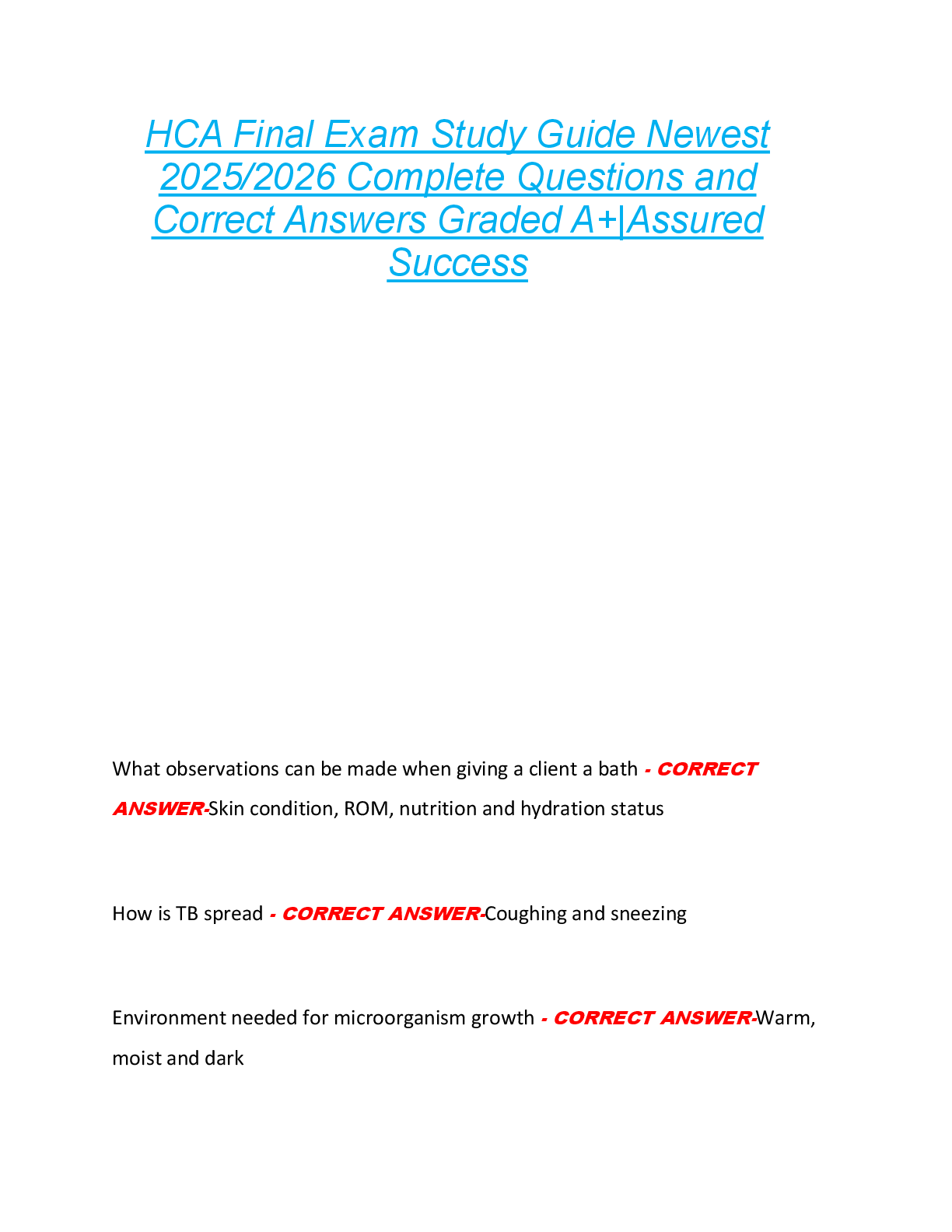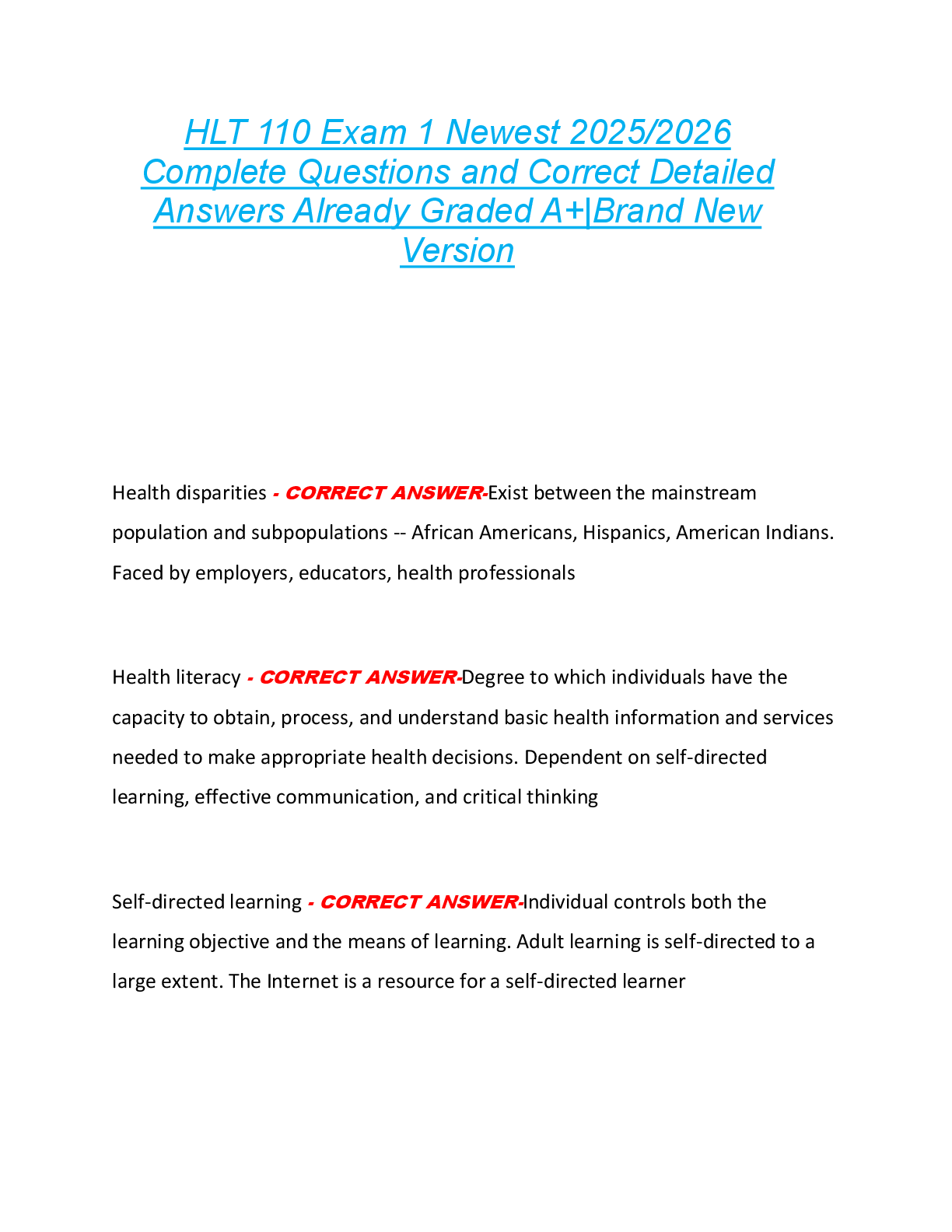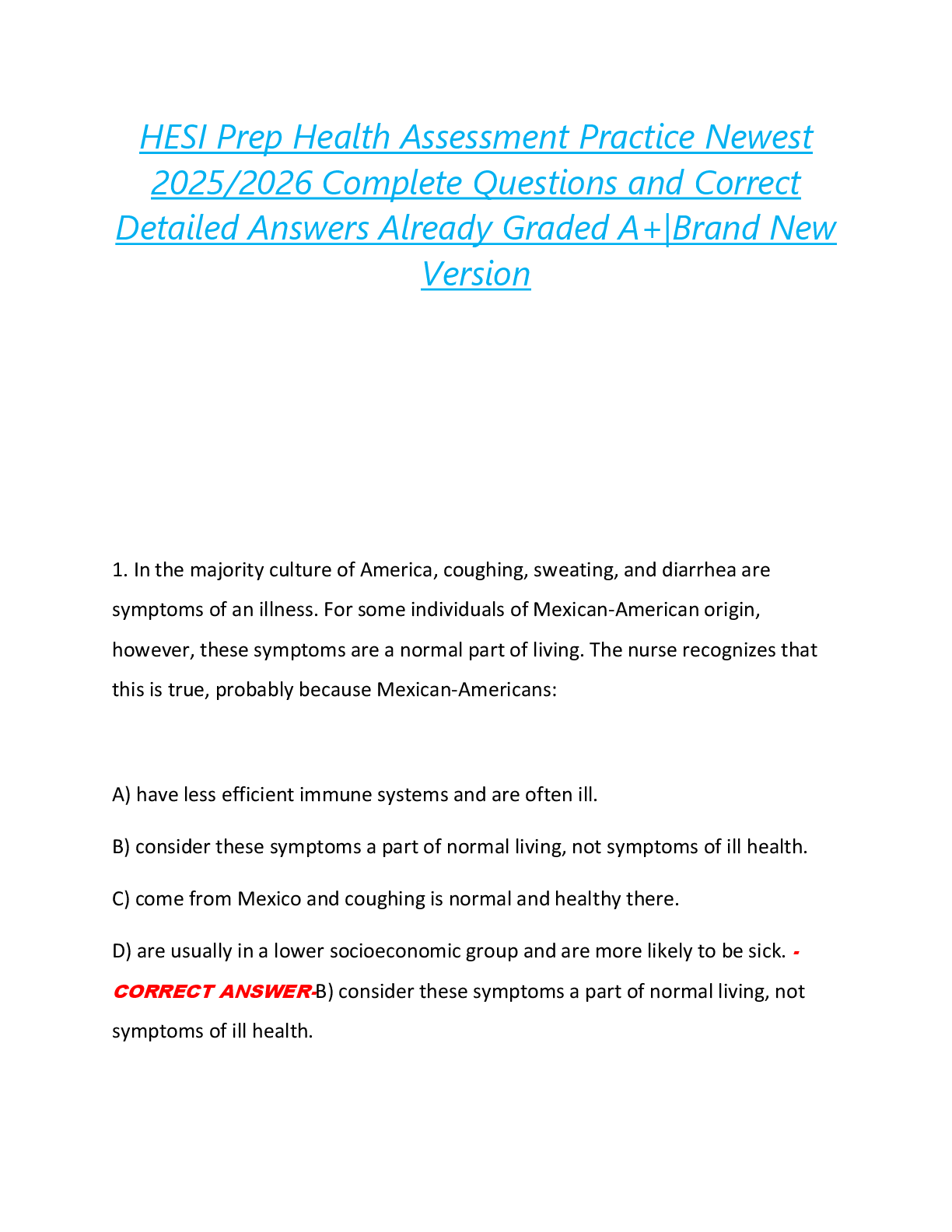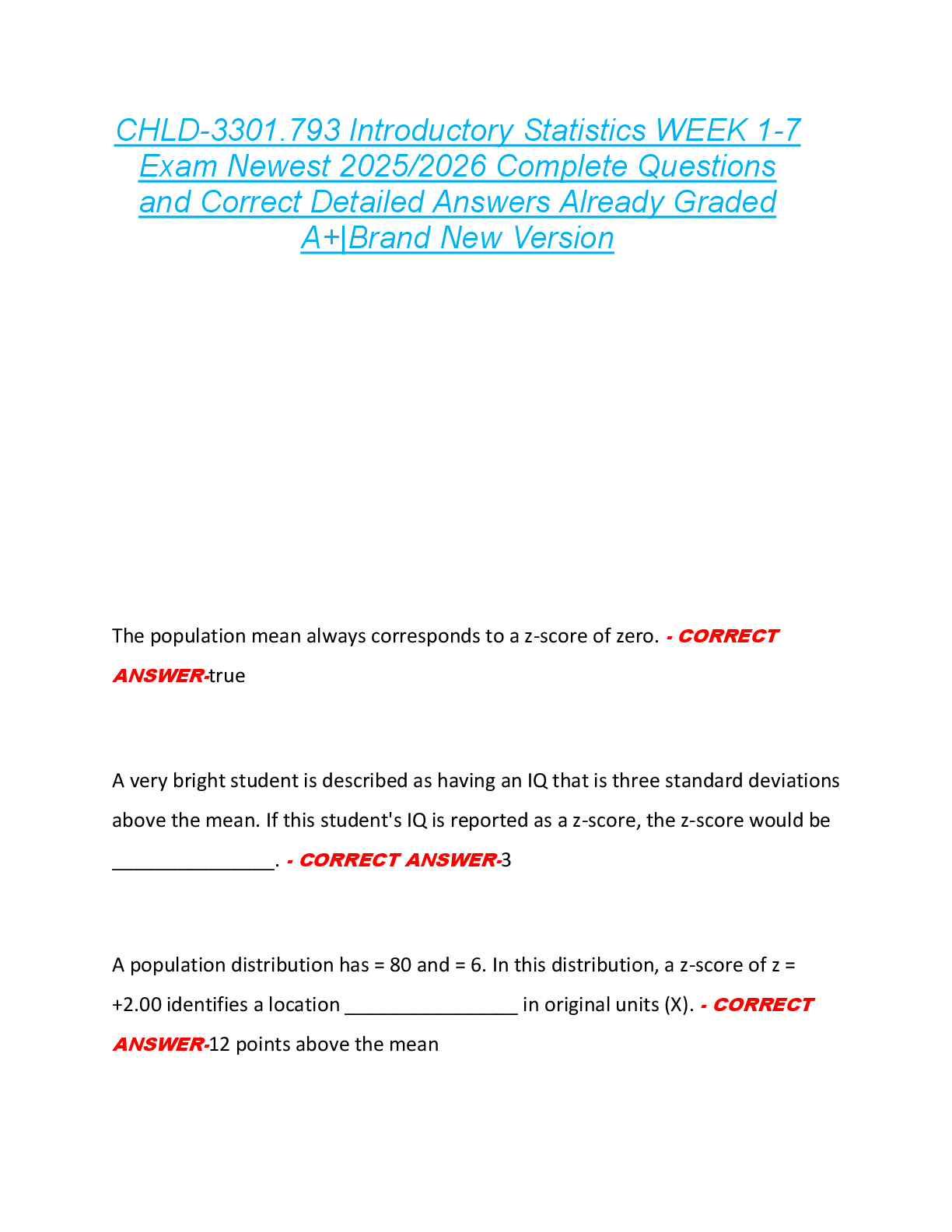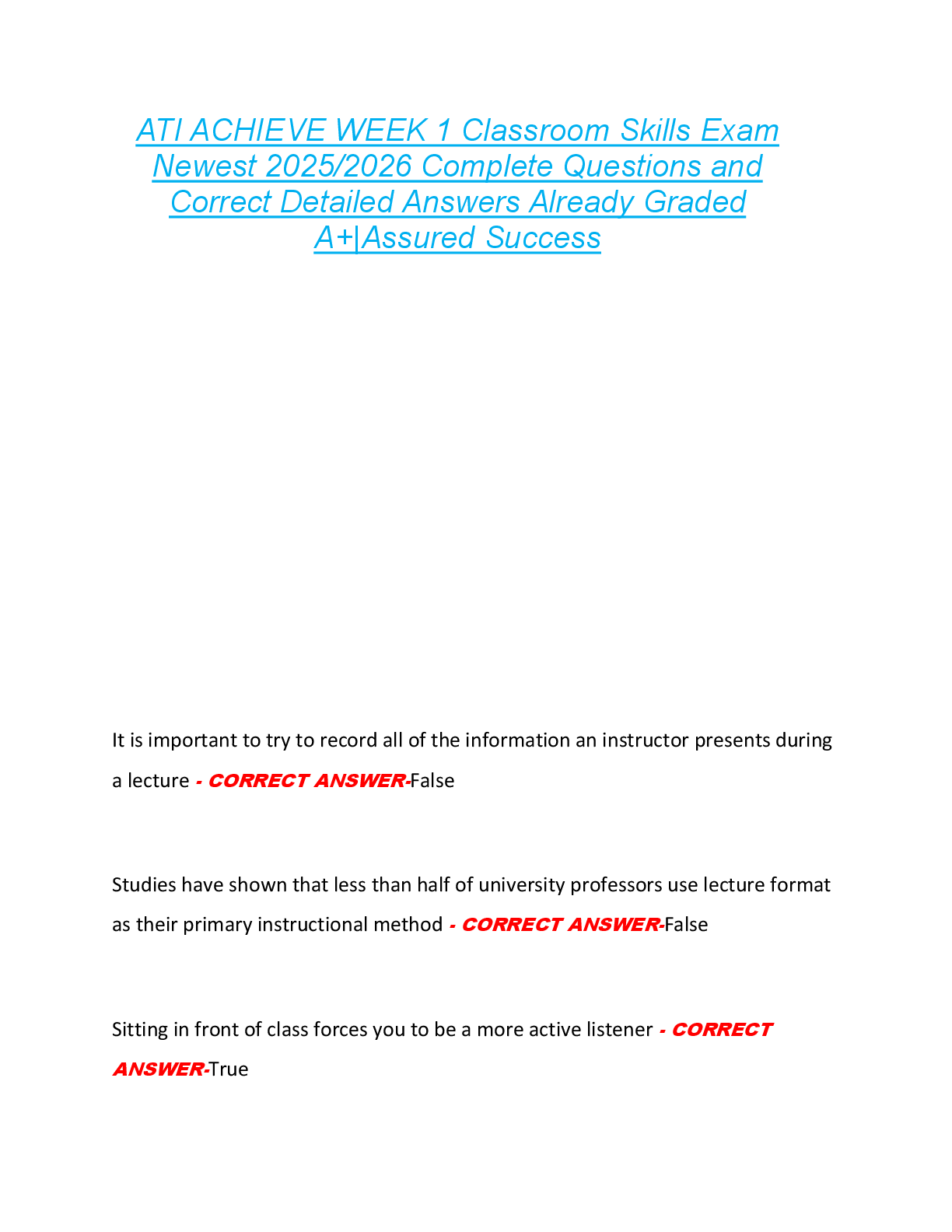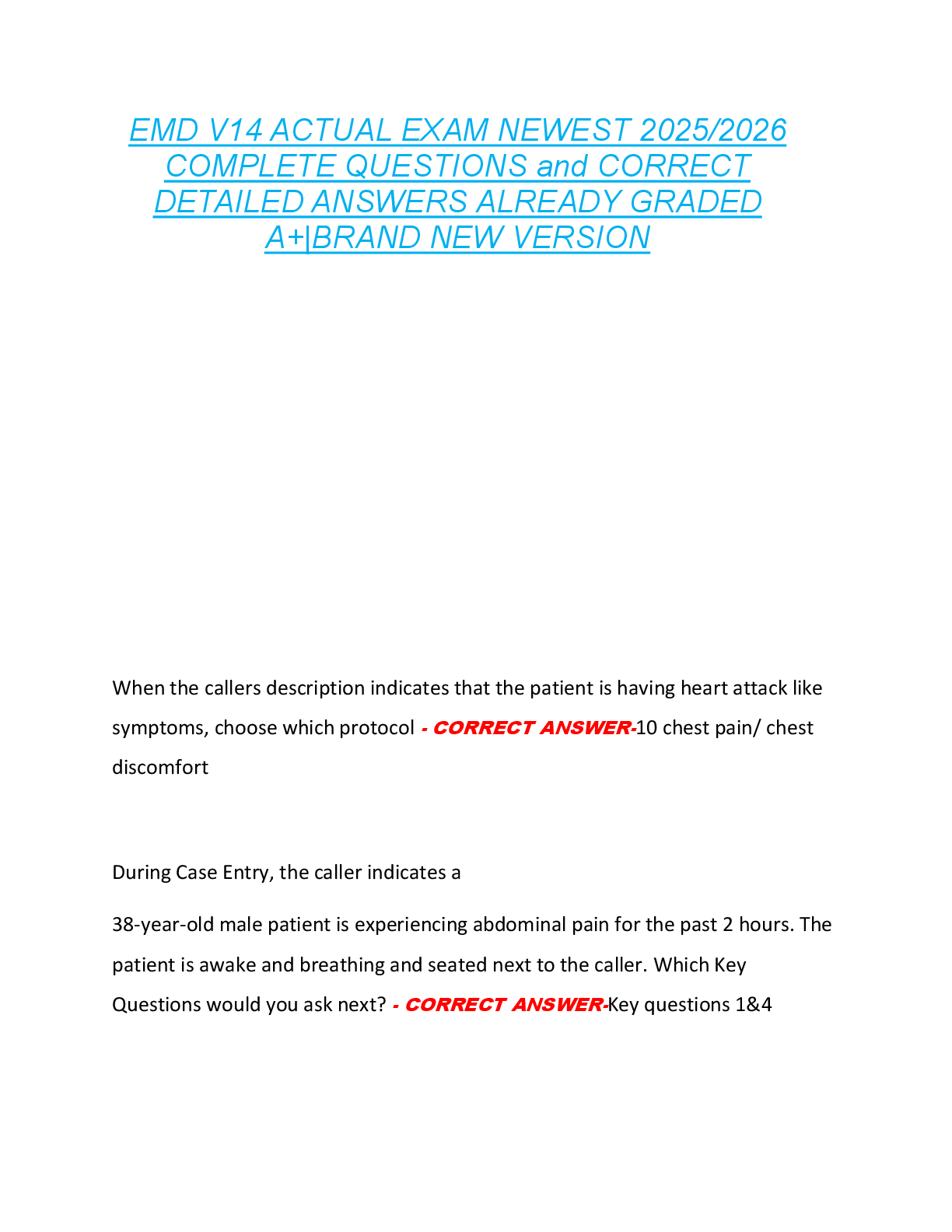Pathophysiology > EXAM > PATHO 370 TEST 3 - Questions, Answers and Response Feedback (All)
PATHO 370 TEST 3 - Questions, Answers and Response Feedback
Document Content and Description Below
Question 1 0.125 out of 0.125 points Administration of which therapy is most appropriate for hypovolemic shock? Selected Answer: c. Crystalloids Correct Answer: c. Crystalloids Response ... Feedback: Crystalloids are solutions that contain electrolytes. Isotonic solutions, such as lactated Ringers, are commonly used crystalloid solutions. These solutions are preferred for volume resuscitation, because they remain in the extracellular space and are more effective in increasing blood volume. Vasoconstrictor agents are contraindicated in hypovolemic shock. Isotonic crystalloids are the most appropriate fluid for volume resuscitation. Isotonic fluids are preferred over glucose or hypotonic electrolyte solutions. • Question 2 0.125 out of 0.125 points Critically ill patients may have parenterally administered vasoactive drugs that are adjusted according to their pressure. Selected Answer: b. mean arterial Correct Answer: b. mean arterial Response Feedback: The mean arterial pressure is used to make incremental adjustments to vasoactive drugs. The MAP is the calculated average pressure within the circulatory system throughout the cardiac cycle. The systolic pressure is a part of the calculation but is not the data element used in adjustment of vasoactive medications. The diastolic reading is involved in calculating the MAP, but is not the number used in titration of vasoactive medications. The pulse pressure is the difference between the systolic and diastolic pressure. • Question 3 0.125 out of 0.125 points Restriction of which electrolytes is recommended in the management of high blood pressure? Selected Answer: d. Sodium Correct Answer: d. Sodium Response Feedback: The balance of the intake of water and sodium with their excretion by the kidney remains the central feature of long-term blood pressure maintenance. Sodium is not rapidly eliminated by the kidney like water and adds to the body’s fluid volume. It is not necessary to restrict the intake of calcium when managing high blood pressure. Potassium does not need to be restricted in the management of high blood pressure. Magnesium does not play a role in the management of high blood pressure. • Question 4 0.125 out of 0.125 points A patient with significant aortic stenosis is likely to experience Selected Answer: b. syncope. Correct Answer: b. syncope. Response Feedback: In the patient with aortic stenosis, syncope and “greying out” episodes may occur when cerebral perfusion is inadequate. Low systolic blood pressure is a common sign of aortic stenosis. Faint pulses are a common sign of aortic stenosis. Peripheral edema is not associated with aortic stenosis. [Show More]
Last updated: 2 years ago
Preview 1 out of 17 pages
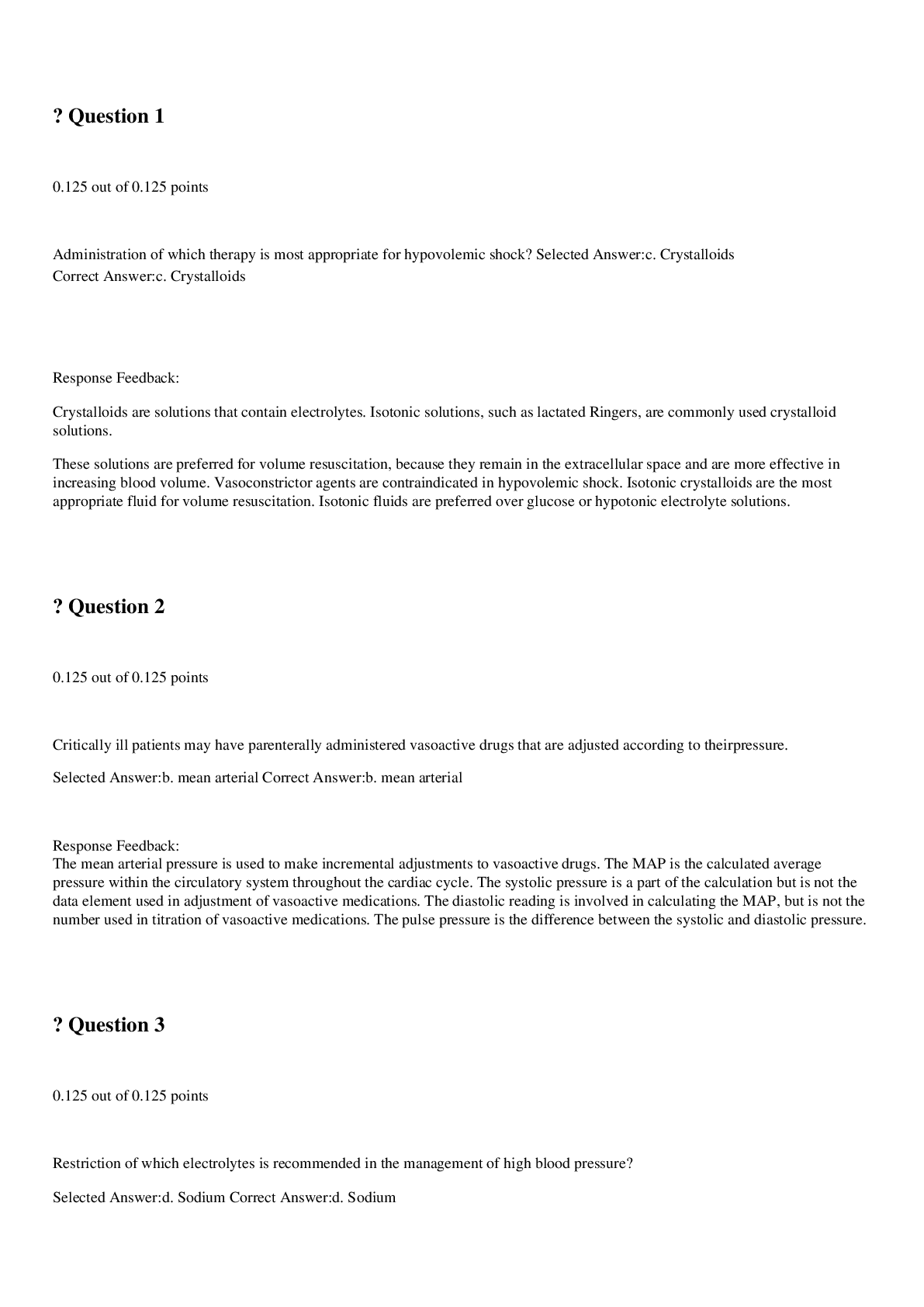
Buy this document to get the full access instantly
Instant Download Access after purchase
Buy NowInstant download
We Accept:

Also available in bundle (1)
Click Below to Access Bundle(s)
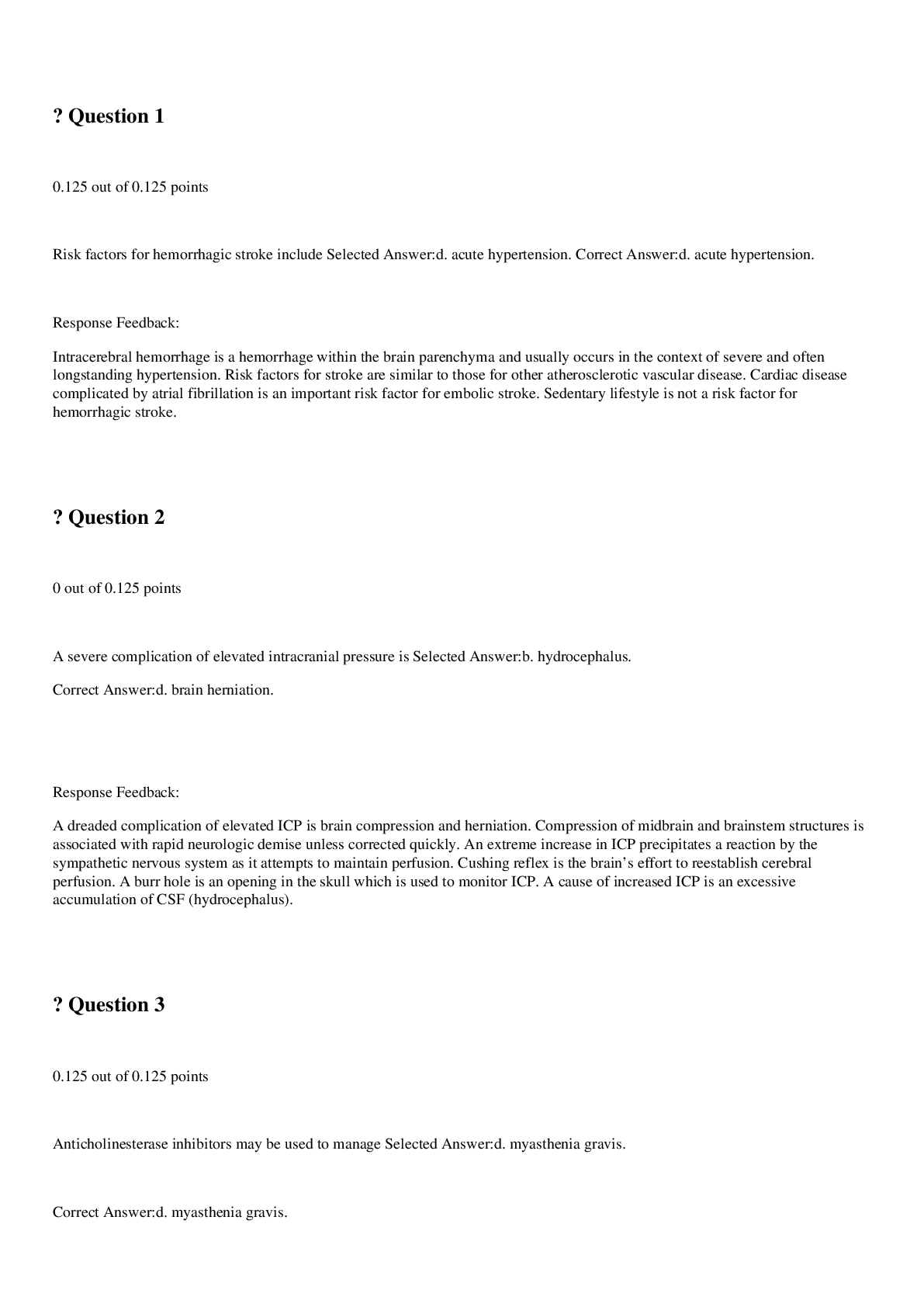
VALUE PACK PATHO 370 PATHOPHYSIOLOGY TEST 1- TEST 7 BUNDLE - WEST COAST UNIVERSITY
PATHO 370 PATHOPHYSIOLOGY TEST 1- TEST 7 BUNDLE - WEST COAST UNIVERSITY
By brightstudy 2 years ago
$40.5
7
Reviews( 0 )
$13.00
Can't find what you want? Try our AI powered Search
Document information
Connected school, study & course
About the document
Uploaded On
Jan 21, 2023
Number of pages
17
Written in
All
Additional information
This document has been written for:
Uploaded
Jan 21, 2023
Downloads
0
Views
104



